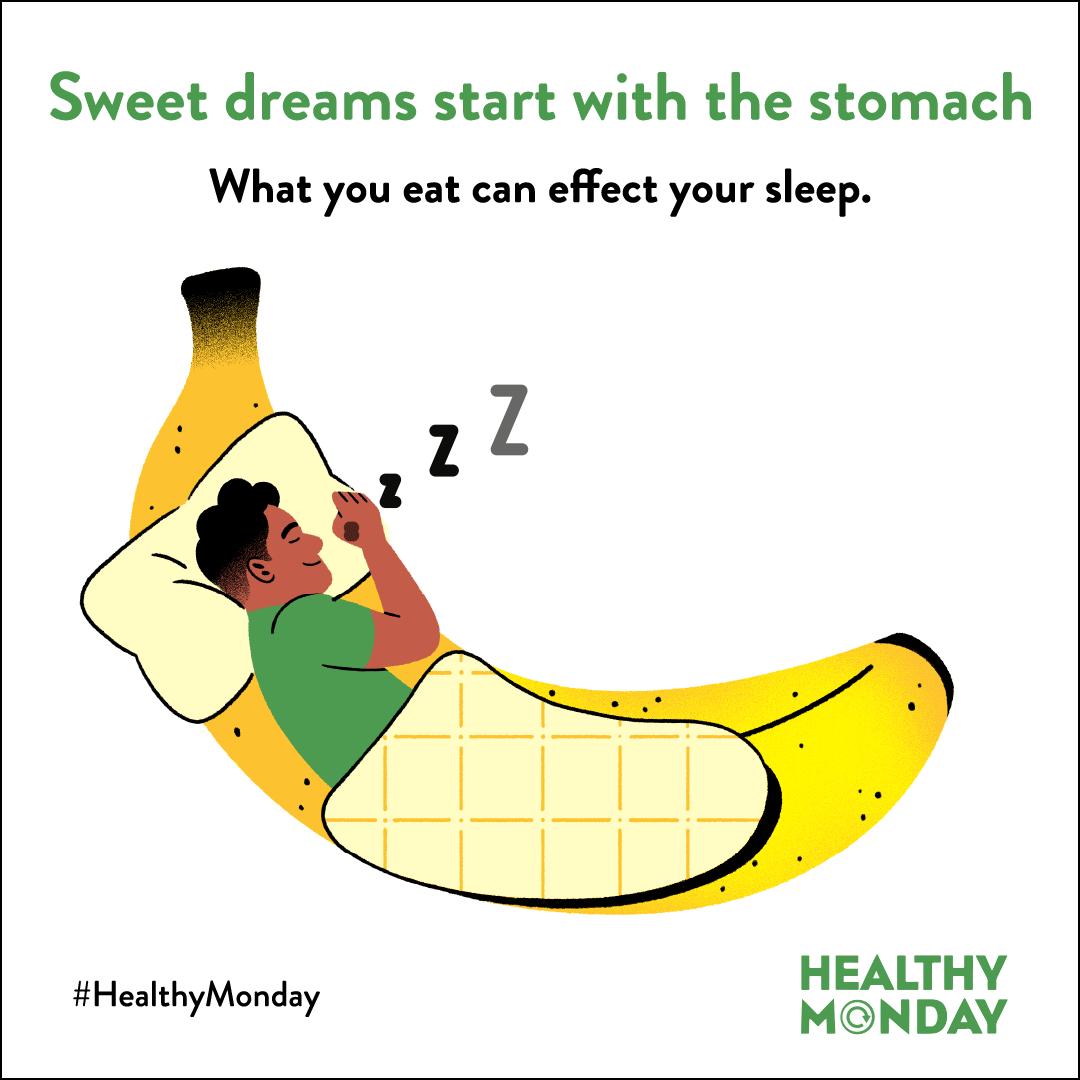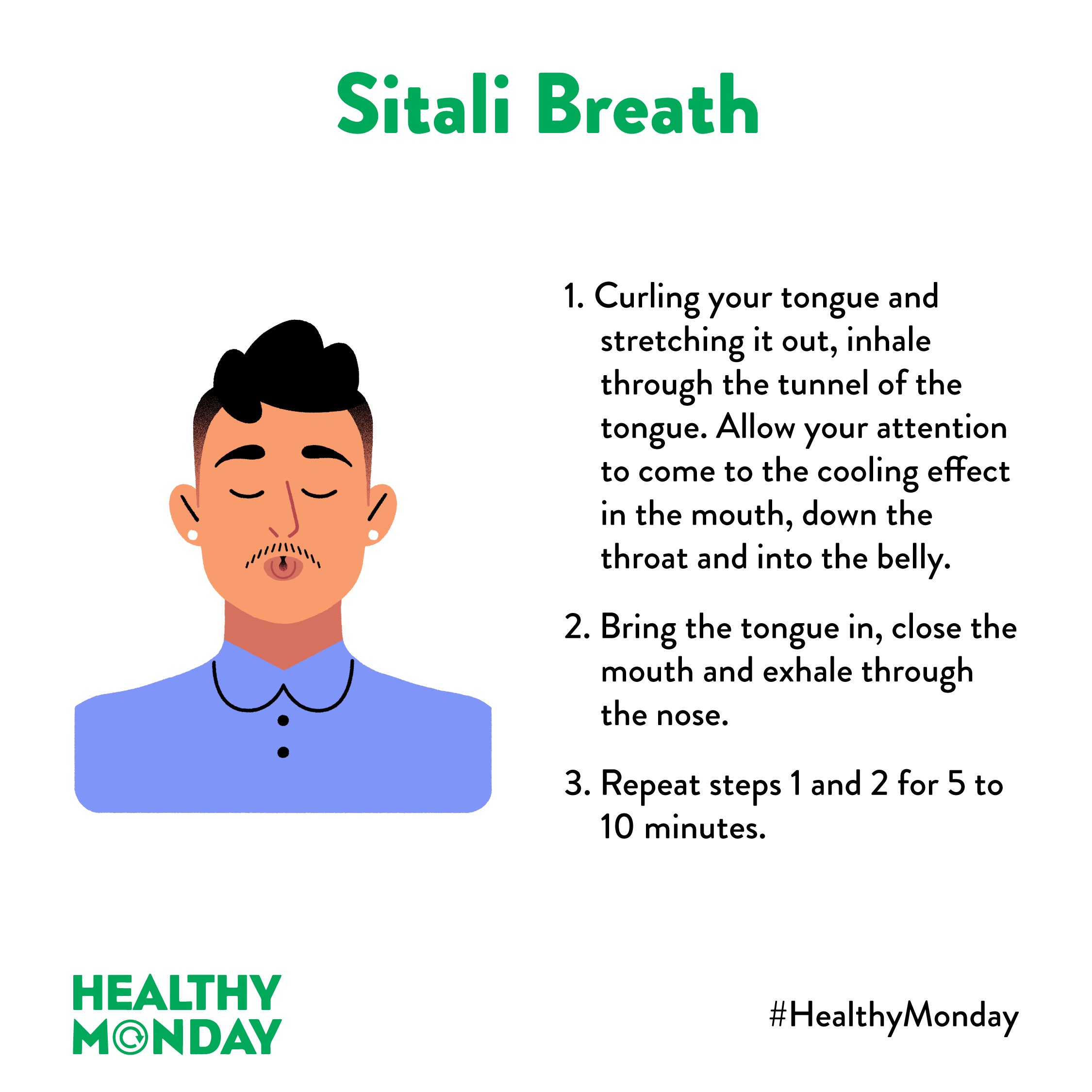REST - Week 10
Weekly Sleep Topic
Weekly Integrative Sleep Technique Video
Patient Sleep Resources
Weekly Sleep Topic
What we eat can affect the quality and consistency of our sleep. While some foods or ingredients can make it easier to go to sleep, others may have the opposite effect, causing us to be wired and jittery at bedtime. The next time you’re picking your meals and snacks, be sure to keep your sleep schedule in mind.
What to Eat:
Almonds
A welcomed addition to a strawberry kale salad, trail mix, or Asian noodle bowl, almonds are packed with beneficial nutrients, including high amounts of magnesium. Magnesium is a mineral that has been found to reduce inflammation and levels of the stress hormone cortisol, helping to promote restful sleep.
Bananas
Universally beloved for their convenience and mellow flavor, bananas are a good source of tryptophan, which is an amino acid that helps to generate serotonin and melatonin. Have breakfast for dinner with a plate of banana buckwheat pancakes or a bowl of banana maple oatmeal to set yourself up for a sound snooze.
Chamomile Tea
It is well known and well documented that herbal teas can help to promote relaxation. Chamomile tea in particular is capable of improving sleep quality. due to its apigenin content. Apigenin is an antioxidant that binds to certain receptors in the brain that may promote sleepiness and reduce insomnia.
Kiwi
Could this little green fruit could be the answer to your restless nights? Research shows that kiwis are rich in serotonin, a brain chemical that helps regulate the sleep cycle. Kiwis can be tricky to eat, so we recommend throwing them into the blender for a late-night kiwi-basil smoothie.
Oatmeal
Complex carbohydrates, like oats, have the power to induce drowsiness at bedtime. Oats — one of our favorite inexpensive Meatless Monday pantry staples — contain melatonin, making them a potentially useful sleep aid if consumed before bed.
What to Avoid:
Beans
Although beans are packed with a bounty of nutritional benefits such as protein, fiber, and minerals, they may not be the best bedtime snack due to their tendency to cause increased bloating and gas. Eating a bowl of chili or rice and beans before sleep, although delicious, may be setting you up for a night of indigestion and gas pains.
Broccoli
Broccoli is a great addition to a healthy diet, but it shouldn’t be consumed close to bed time. High fiber foods like broccoli take the body longer to digest, which may keep you awake at night.
Candy
An evening full of candy or other sugary treats may have you tossing and turning in bed. The high sugar content of candy can cause wild swings in blood-sugar levels that can interrupt a restful sleep schedule.
Cured Meats
Preserved meats contain high concentrations of the amino acid tyramine, which signals the brain to release norepinephrine, a neurotransmitter that readies the body for action. Levels of norepinephrine are lowest during sleep and highest during dangerous or stressful situations. Thankfully, there are plenty of plant-based swaps to satisfy your cravings for salty, fatty foods.
Spicy Food
Finishing off a spicy bowl of curry or cauliflower Buffalo wings may awaken your taste buds, but it also may keep you awake when going to sleep. Spicy foods like Chile peppers can be good for you, but eating them before bedtime can lead to indigestion, heart burn, and elevated body temperature — all of which can impair sleep.
Caffeinated Food & Beverages
We know caffeine can help wake us up in the morning and can help to improve our concentration and focus. On the other hand, caffeine can interfere with our sleep when ingested near bedtime. Ideally, the morning is the only time we should drink caffeine or eat foods with caffeine. Avoid having caffeine after 12 noon when you are working during the day and sleeping at night. Be on the lookout for caffeine that may be hidden in foods and beverages such as chocolate, energy drinks and bars, as well as coffees and teas.
Weekly Integrative Sleep Video
Click here to jump to the top of the page.
Click here for previous REST videos.
Weekly Patient Sleep Resources
Click here to download the Alternate Nostril Breathing graphic.
Epic Smartphrase: .AlternateNostrilBreathSleep
Click here to download the Sitali Breath graphic.
Epic Smartphrase: .SitaliSleep
Click here to download the Sitkari Breath graphic.
Epic Smartphrase: .SitkariSleep



